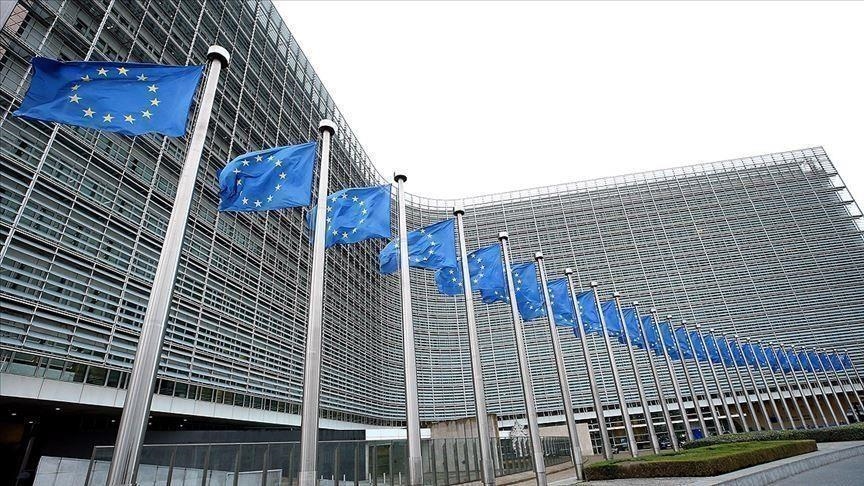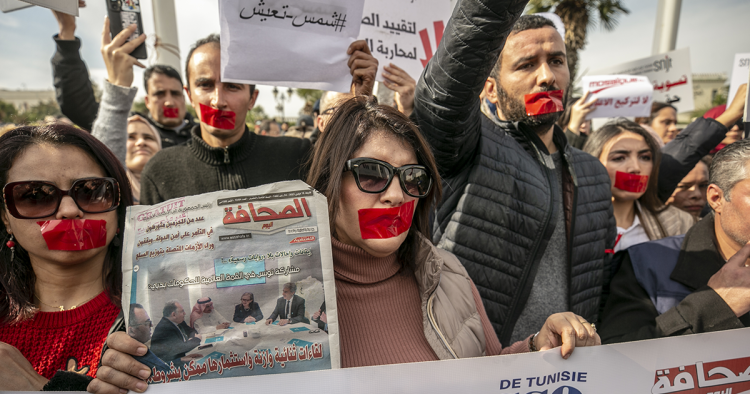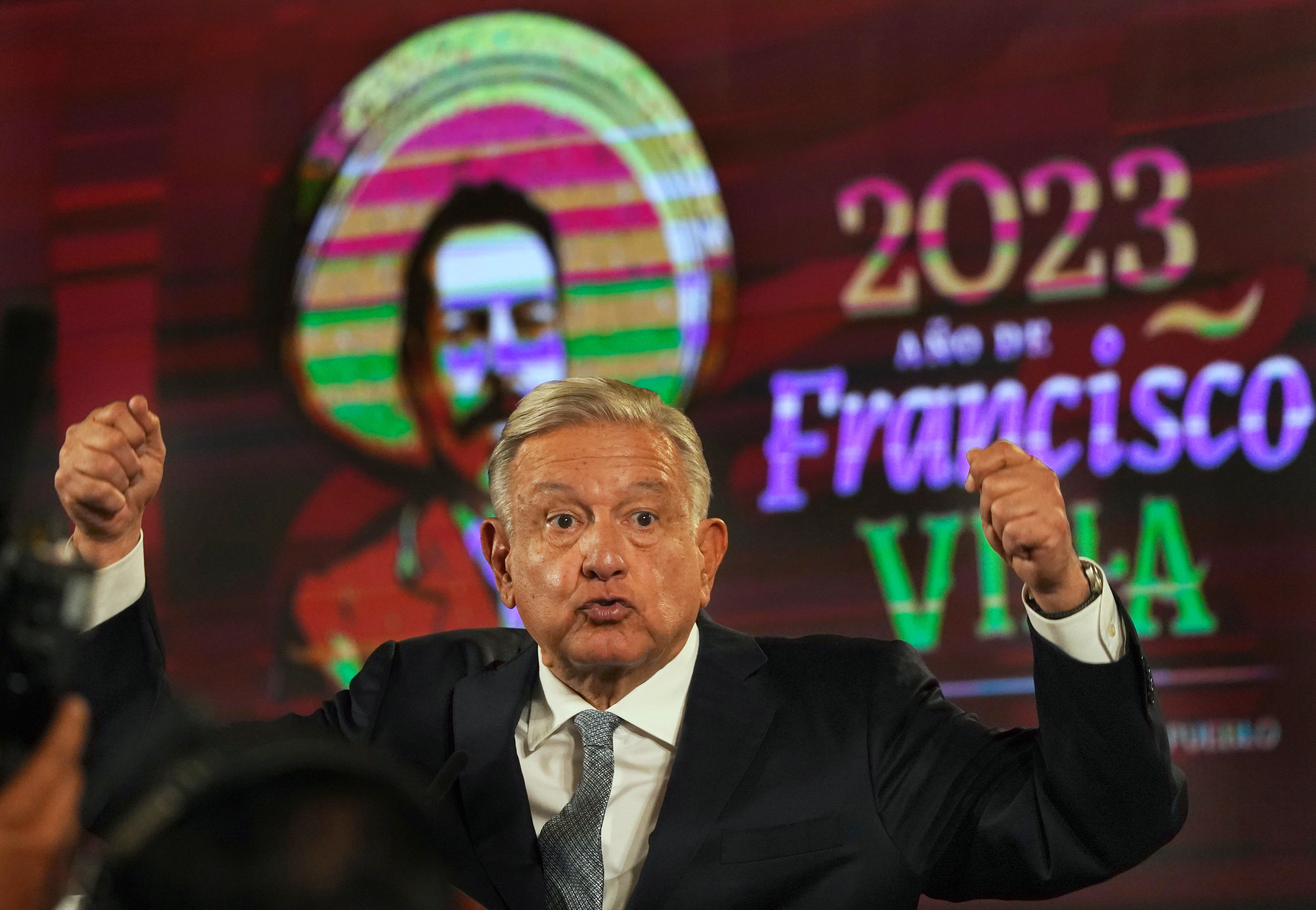Government pushes ahead with judicial overhaul in Knesset amid protests
Stun grenades, tear gas fired at crowds blocking Ayalon Highway, with several reported wounded; police use water cannons, horses in bid to break up anti-government protest

Police clash with protesters during a demonstration against the Israeli government's planned judicial overhaul, in Tel Aviv, March 1, 2023. (Erik Marmor/Flash90)

Protesters clash with security forces during a demonstration against the government's controversial judicial overhaul, in Tel Aviv on March 1, 2023. (JACK GUEZ / AFP)
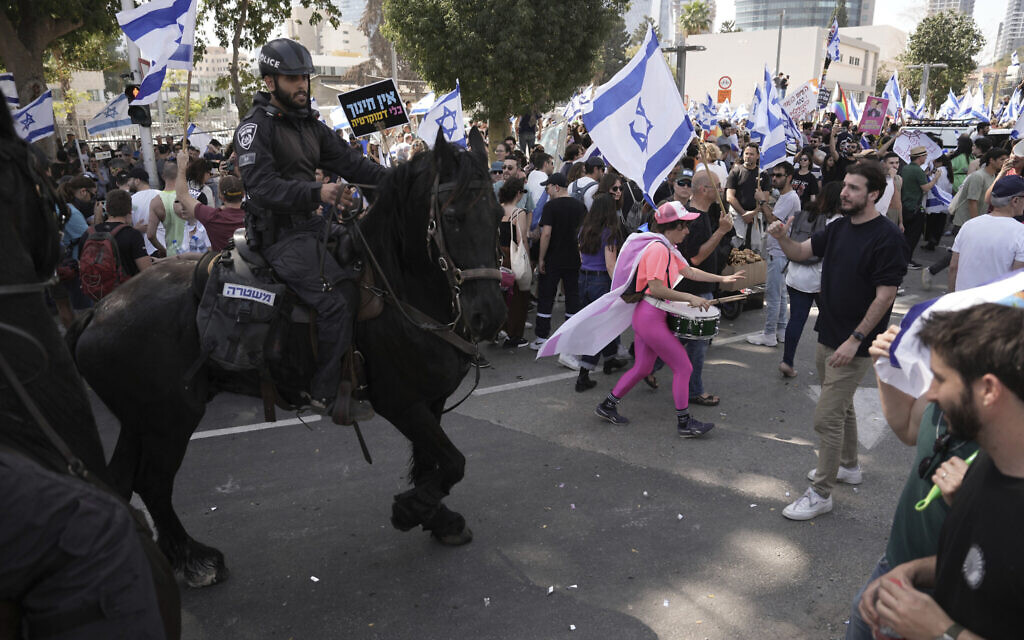
Mounted police push Israelis blocking a road to protest against plans by Prime Minister Benjamin Netanyahu's government to overhaul the judicial system, in Tel Aviv, March 1, 2023. (AP Photo/Oded Balilty)
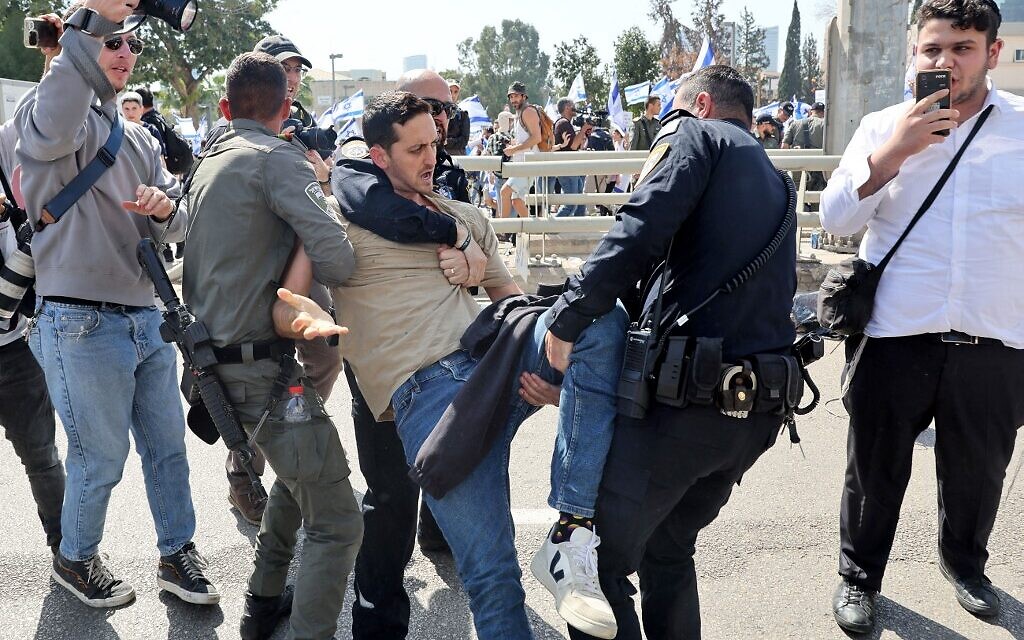
Israeli police officers detain a protester during a demonstration against the government's controversial justice overhaul in Tel Aviv on March 1, 2023. (JACK GUEZ / AFP)
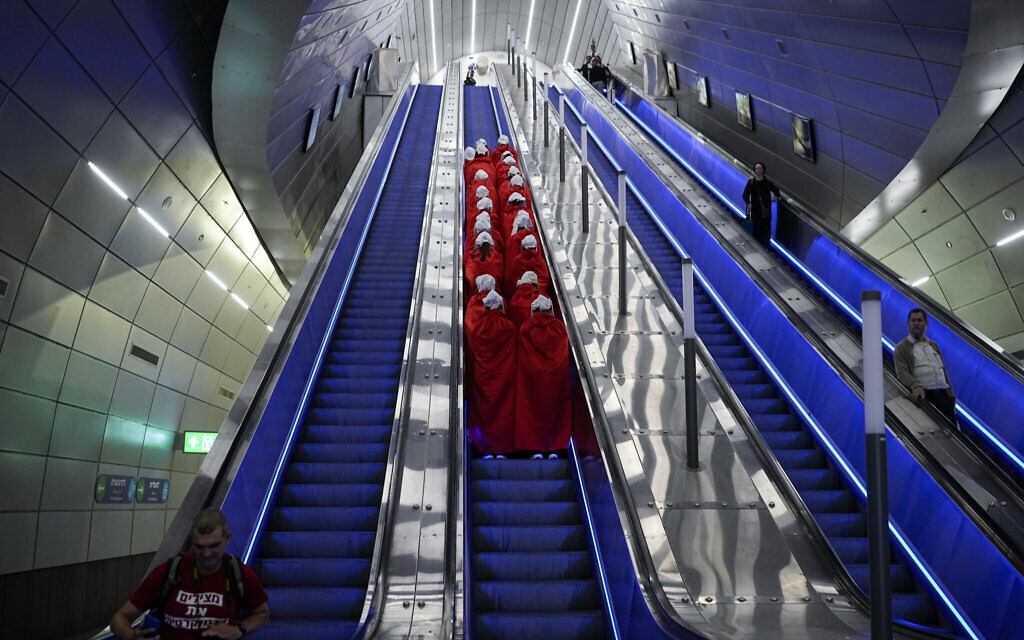
Protesters supporting women's rights dressed as characters from The Handmaid's Tale TV series traveling to a protest against plans by Prime Minister Benjamin Netanyahu's new government to overhaul the judicial system, at a railway station in Jerusalem, March 1, 2023. (AP Photo/Ohad Zwigenberg)

Police clash with protesters during a demonstration against the Israeli government's planned judicial overhaul, in Tel Aviv, March 1, 2023. (Erik Marmor/Flash90)

Protesters clash with security forces during a demonstration against the government's controversial justice overhaul bill in Tel Aviv on March 1, 2023. (JACK GUEZ / AFP)
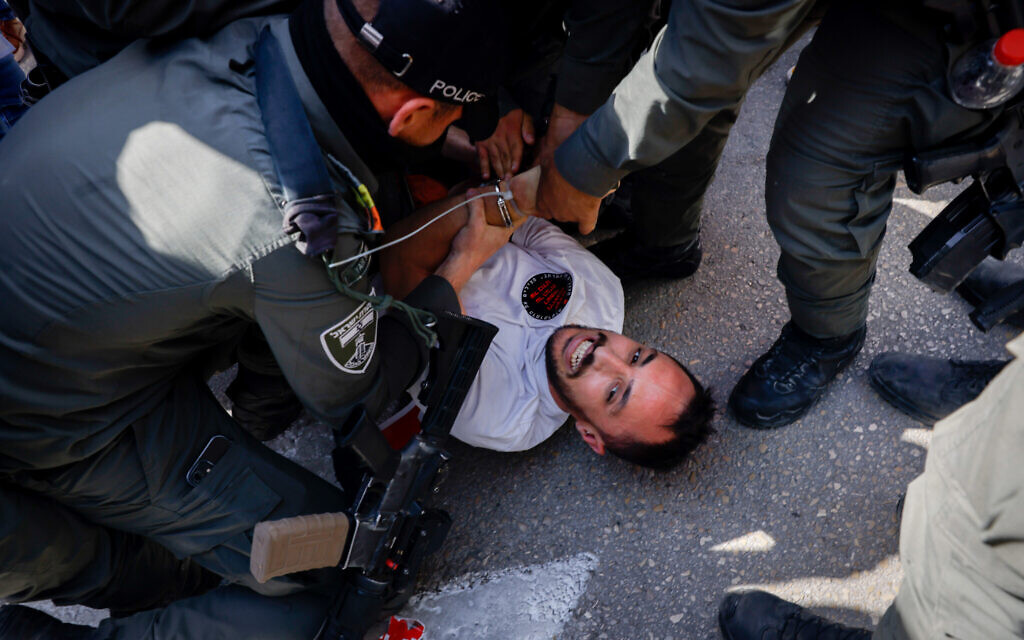
Police clash with protesters during a demonstration against the Israeli government's planned judicial overhaul, in Tel Aviv, March 1, 2023. (Erik Marmor/Flash90)
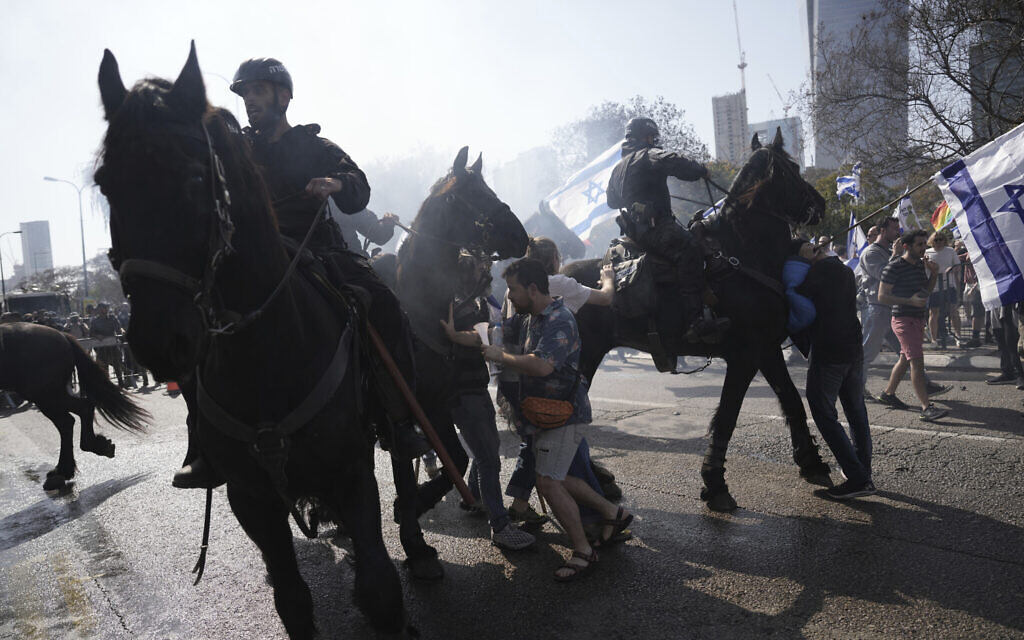
Israeli police deploy horses and stun grenades to disperse Israelis blocking a main road to protest against plans by Prime Minister Benjamin Netanyahu's new government to overhaul the judicial system, in Tel Aviv, Israel, Wednesday, March 1, 2023. (AP Photo/Oded Balilty)
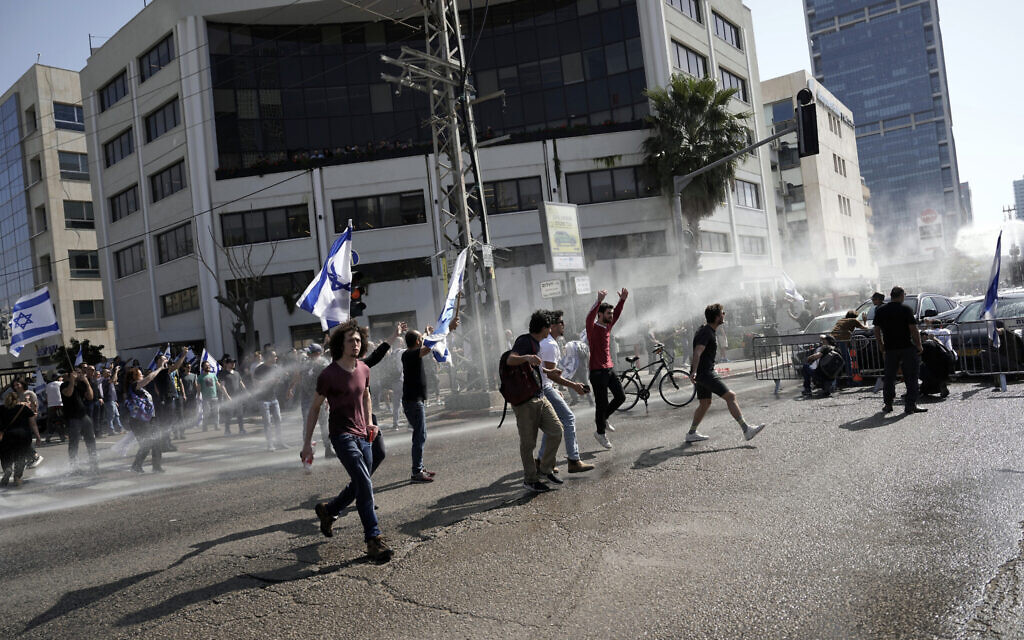
Israeli police deploy a water cannon to disperse Israelis blocking a main road to protest against plans by Prime Minister Benjamin Netanyahu's new government to overhaul the judicial system, in Tel Aviv, Israel, Wednesday, March 1, 2023. (AP Photo/Oded Balilty)

Police clash with protesters during a demonstration against the Israeli government's planned judicial overhaul, in Tel Aviv, March 1, 2023. (Erik Marmor/Flash90)1
Friedman confirms opposition to judicial overhaul, but says criticism respectful
By JACOB MAGID
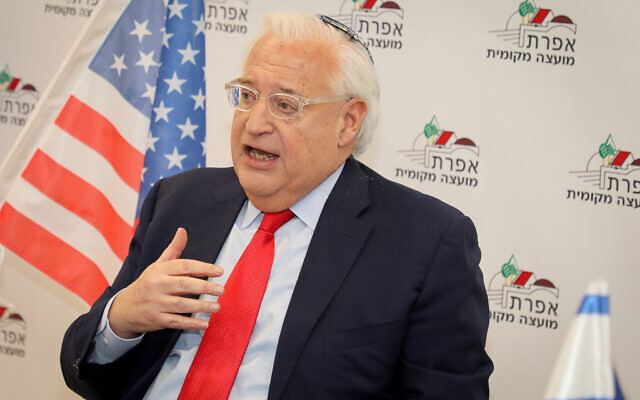
Then-US ambassador to Israel David Friedman during a visit in the Jewish settlement of Efrat, in Gush Etzion, February 20, 2020. (Gershon Elinson/Flash90)
Former US president Donald Trump’s ambassador to Israel David Friedman confirms an Axios report revealing his opposition to the judicial overhaul being advanced by Prime Minister Benjamin Netanyahu’s government, but says his concerns were made “respectfully” and were part of an “attempt to find common ground.”
“The tone of the conversation was not about slamming or being critical or pointing fingers, rather recognizing that this is a complicated issue,” he tells The Times of Israel.
Earlier today, Axios reported that during a private session of a conference organized by a pair of conservative think tanks, Friedman pushed back on one of the overhaul’s key architect’s claims that the proposals would make Israel more like the US.
“You compare this to the US, but it doesn’t work like that in our system,” Axios quoted him as having told Religious Zionism MK Simcha Rothman, drawing applause from many in the room.
Friedman also singled out the so-called “override clause” that would let the government re-legislate laws struck down by the courts. He added that in the US, the courts exist to protect minority rights and that the override clause will prevent the Israeli courts from doing the same.
Speaking with The Times of Israel, Friedman adds that protecting “minority rights are an important aspect of the US government and should be for any government.”
Smotrich says media distorting his words after he called to ‘wipe out’ village
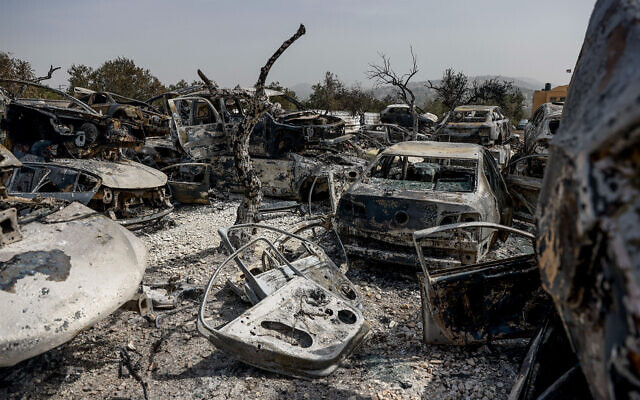
Cars burned by Jewish settlers during riots in Hawara, in the West Bank, near Nablus, February 27, 2023. (Erik Marmor/Flash90)
Religious Zionism leader Bezalel Smotrich accuses the media of distorting his words after he called to “wipe out” a Palestinian village.
The remark by Smotrich — who is the finance minister and also a minister in the Defense Ministry in charge of civilian affairs in the West Bank — came days after a terrorist from Huwara shot dead two Israeli brothers, which was followed by extremist settlers rampaging through the Nablus-area town and setting homes and cars on fire, resulting in one Palestinian shot dead and several badly hurt.
Asked at a conference why he had on Sunday evening “liked” a tweet by Samaria Regional Council deputy mayor Davidi Ben Zion that called “to wipe out the village of Huwara today,” Smotrich replied: “Because I think the village of Huwara needs to be wiped out. I think the State of Israel should do it.”
He added that “God forbid,” the job shouldn’t be done by private citizens.
Smotrich later issues a statement saying that “once again the media takes my quote and tries to create a distorted interpretation of it.”
“If they had played my words in full, you would have heard that I spoke about how Huwara is a hostile village that has become a terrorist outpost from where terrorist acts of throwing stones and shooting against Jews are launched every day. But it is forbidden in any way to take the law into one’s own hands.”
“I said that I support a disproportionate response by the IDF and the security forces to every act of terrorism. For every stone, the closing of the shops at the site; for every firebomb, arrests and deportation of the families of the terrorists; for every nest of terror, closure and exacting a painful price until the terrorists and their supporters realize that… terrorism does not pay.”
Israeli protesters, taking part in 'day of disruption' in Tel Aviv to show their opposition to Prime Minister Benjamin Netanyahu's so-called judicial coup, were met with stun grenades and water cannon as authorities tried to shut the protests down.
March 1, 2023
Protesters against the Israeli government's controversial judicial reform plan today launched a "National Day of Disruption" by blocking roads and marching in cities across the country. At least 22 people have been arrested on charges including assaulting police officers, disrupting traffic and refusing orders to leave major junctions and roadways.
According to the Times of Israel, Israel Railways said that trains would not be stopping at HaShalom, Savidor or University stations because of the protests. "Over the last hour, there have been a number of intentional disruptions to the closing of the doors on some trains when they stop at stations, and as a result the trains are delayed and there are disruptions to movement and travel," said the railway company. "We ask all passengers to allow safe and regular journeys to continue."
Israeli National Security Minister, the extreme right-wing Itamar Ben-Gvir, said that he was instructing police to remove protesters who were disrupting traffic on roads and highways. "The blocking of central roads must not be allowed, and all of the anarchists' blockades must be opened," he insisted. "I am in favour of democratic protest, but we will not allow civil riots and we will not allow anarchists to block major roads."
The protests include a series of planned gatherings and marches around the country and outside the homes of coalition lawmakers and ministers. They will also include strikes at various workplaces and schools, and the blocking of roads, all laid out in detail on a dedicated website and map.
"Israel won't become a dictatorship," said the protest organiser. "The millions who have taken to the streets over the past eight weeks have made this clear and we are now moving on to direct action."
The planned judicial reform programme was proposed by Justice Minister Yariv Levin. If enacted, it would be the most radical change ever in the system of government in Israel. The changes would severely limit the power of the Supreme Court of Justice, give the government the power to choose judges, and end the appointment of legal advisers to ministries by the attorney general.
Netanyahu, who is on trial for corruption, defended the controversial reforms, saying that he has a mandate from millions of voters to carry out the changes. His coalition government was sworn in on 29 December following elections in November which gave his extreme right-wing bloc a simple majority.


